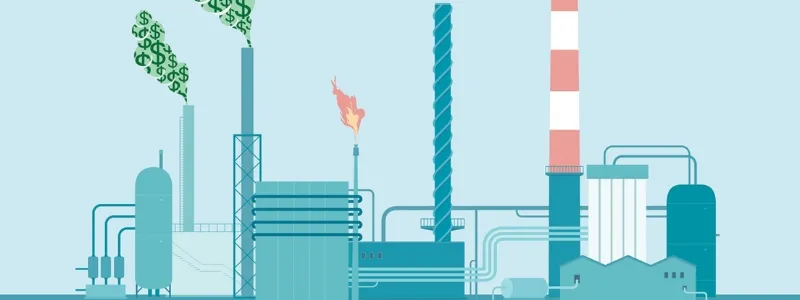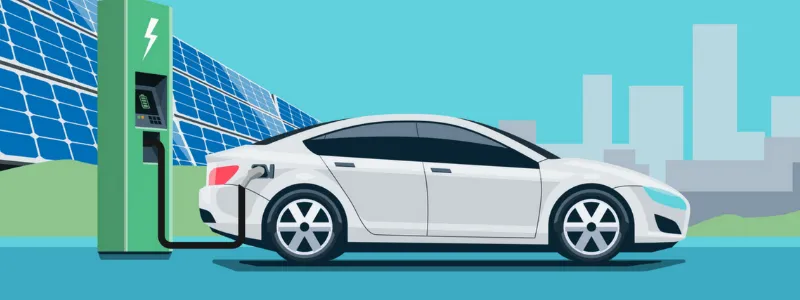Sweden is widely known for its sustainable practices, and is considered to be the most environmentally friendly country in the world. Sweden has a long history of environmentalism, and its citizens are highly engaged in ensuring that their country is as sustainable as possible. Sweden is widely praised for its sustainable infrastructure; examples include their recycling and waste management programs and their investment in renewable energy sources, particularly wind power. Sweden is also a leader in electric vehicle adoption, with nearly one in every three new cars sold in the country being electric. Sweden's commitment to sustainability is evident in its actions, and it is clear that the country is serious about making a real difference.
Sweden's carbon tax
Sweden has a carbon tax that is designed to help the country reduce its greenhouse gas emissions. This tax is based on the amount of carbon dioxide that is emitted from each type of fuel. The tax is applied at the point of sale, and increases the cost of fuels that emit a large amounts of carbon dioxide. This helps to discourage people from using these fuels and encourages them to switch to more sustainable options. The carbon tax has been very effective in reducing Sweden's greenhouse gas emissions, and it is one of the many reasons why Sweden is considered to be such a sustainable country.

Sweden's recycling and waste management system
Sweden has a very efficient recycling and waste management system. Nearly all of the country's household waste is either recycled or incinerated, with only a small amount going to landfill. Sweden also has a number of initiatives in place to reduce food waste. It is working to develop a circular economy, in which waste is reused or recycled instead of being sent to landfill.
Food waste reduction
Sweden is working to reduce food waste by implementing a number of initiatives. One example is the "food waste prevention week" campaign, which encourages people to think about ways to reduce their food waste. The campaign provides tips and advice on how to waste less food, including offering recipes for dishes that can be made from leftover food. Sweden is also working to develop a circular economy in which food waste is reused or recycled instead of being sent to landfill. This will help the country to reduce its environmental impact and prevent food from going to waste.
Waste to energy facilities
Another great part of Sweden's sustainable infrastructure is their waste-to-energy facilities. These facilities take the waste and use incineration to generate energy, such as heat and electricity. Tis process relies on the heat to generate steam, which powers turbines that generate electricity. The ash that is left over from incineration can also be used, for things like road construction and agriculture.
Sweden has a number of waste-to-energy facilities, and they play an important role in the country's recycling and waste management system. These facilities help Sweden to reduce its environmental impact by recycling waste and generating renewable energy.
Electric vehicles in Sweden
Sweden has a number of incentives and policies in place to encourage people to switch to electric vehicles. Some of these incentives include tax breaks, subsidies, and free parking. Sweden also uses incentives to support the development of the electric vehicle industry. These policies include things like quotas for electric vehicles, research and development funding, and subsidies for electric vehicle charging infrastructure.
All these things make Sweden a world leader in electric vehicle adoption. The number of electric vehicles on their roads is growing rapidly, and this is helping to reduce the country's reliance on fossil fuels. Electric vehicles are not only more environmentally friendly than traditional petrol or diesel cars, but they are also cheaper to operate and maintain. This is making them an increasingly popular choice for Swedish motorists.

Sweden's Renewable energy
Sweden currently has a renewable energy industry to be admired. The country is home to some of the largest wind and solar farms in Europe. Wind and solar power is a clean and renewable source of energy, and it is an important part of Sweden's commitment increased sustainability. Sweden has set a goal to produce 100% of its electricity from renewable sources by 2040, and these sources will play an integral role in achieving this goal. The country's wind farms are already providing enough electricity to power more than 1.5 million homes. And this will only increase in the future as Sweden continues to invest in renewable energy.
Sweden is also investing in hydropower. Hydropower is a renewable source of energy that relies on water to generate electricity. Sweden already has a number of hydroelectric plants, and is committed to continue increasing that number.
Sustainable forestry in Sweden
Sweden's has a large forestry sector and a pretty sustainable one at that. The principles of their sustainable management system, means that forests are managed in a way that ensures they will continue to thrive in the future. This includes replanting trees that have been harvested, and protecting forests from fire and disease. Sweden's forestry sector is an important part of the country's economy, and it plays a vital role in maintaining the country's forests. Sustainable forestry is not only good for the environment, but it also provides jobs and economic benefits for the people of Sweden.

Sweden's Climate Policy Framework
Sweden is already the leading country in the world when it comes to sustainability. In 2017 the climate policy framework was introduced in Sweden. This was at the time Sweden's most important climate reform in its history; with the goal to be net zero for greenhouse gas emissions by 2045.
The newly introduced climate act and climate policy to be followed by the government will help insure Sweden successfully meets their goal. Targets for individual sectors will be set with closer time frames; such as a 70% reduction (since 1990) in domestic transport by 2030.
Wind power will also play an integral role in the counties target to rely on 100% renewable energy by 2040. And Sweden has also recently introduced a ban on the extraction of coal and natural gases which came into force in July this year (2022).
Sweden's strong commitment to the climate change looks to see it being the first country in the world to become net zero.
Summary
Sweden is the current global leader in sustainability and is the most environmentally friendly county in the world. It has an enviable sustainably structure in a wide range of industries; and is set to be net zero by 2045. Sweden's tenacity and reliability to its commitments run strong through the whole country, from the government to the public. It is this passion that will inevitably see Sweden becoming the first country in the world to become 100% sustainable and carbon neutral.










